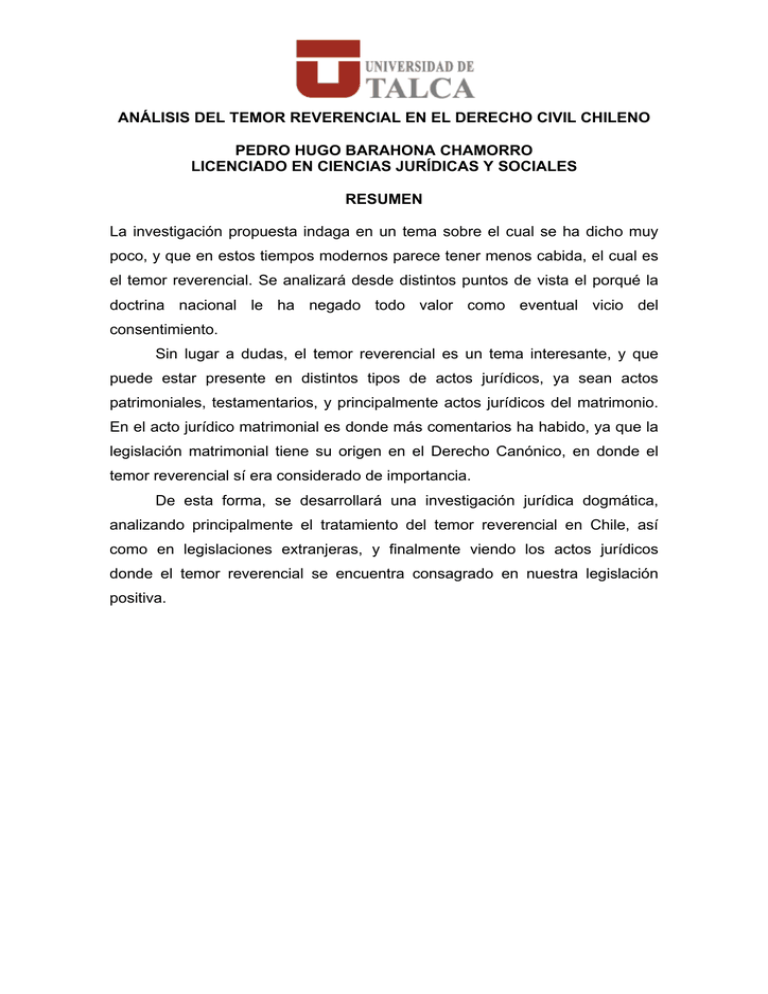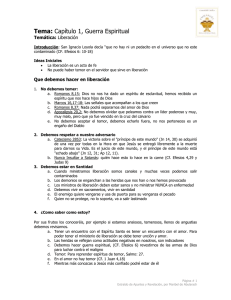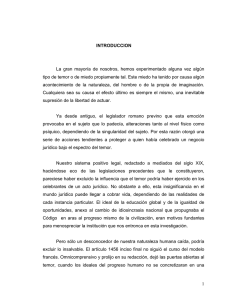análisis del temor reverencial en el derecho civil chileno pedro hugo
Anuncio

ANÁLISIS DEL TEMOR REVERENCIAL EN EL DERECHO CIVIL CHILENO PEDRO HUGO BARAHONA CHAMORRO LICENCIADO EN CIENCIAS JURÍDICAS Y SOCIALES RESUMEN La investigación propuesta indaga en un tema sobre el cual se ha dicho muy poco, y que en estos tiempos modernos parece tener menos cabida, el cual es el temor reverencial. Se analizará desde distintos puntos de vista el porqué la doctrina nacional le ha negado todo valor como eventual vicio del consentimiento. Sin lugar a dudas, el temor reverencial es un tema interesante, y que puede estar presente en distintos tipos de actos jurídicos, ya sean actos patrimoniales, testamentarios, y principalmente actos jurídicos del matrimonio. En el acto jurídico matrimonial es donde más comentarios ha habido, ya que la legislación matrimonial tiene su origen en el Derecho Canónico, en donde el temor reverencial sí era considerado de importancia. De esta forma, se desarrollará una investigación jurídica dogmática, analizando principalmente el tratamiento del temor reverencial en Chile, así como en legislaciones extranjeras, y finalmente viendo los actos jurídicos donde el temor reverencial se encuentra consagrado en nuestra legislación positiva. ABSTRACT The proposed investigation is about a topic on which has been said very little, and that in these modern times seems to have fewer fitted, the reverential awe which is. Will be analyzed from different points of view the reason why the national doctrine has denied him all value as eventual vice of the consent. Without doubt, the reverential awe is an interesting topic, and that can be present in different types of legal acts, already are acts patrimonial, testamentary, and mostly legal acts of the marriage. In the matrimonial legal act is where more comments has had, since the matrimonial legislation has his origin in the Canon Law, where the reverential awe yes was considered of importance. This way, will take place a legal dogmatic investigation, analyzing mostly the treatment of the reverential awe in Chile, as well as in foreign legislations, and finally seeing legal acts where the reverential awe is found consecrated in our positive legislation.



